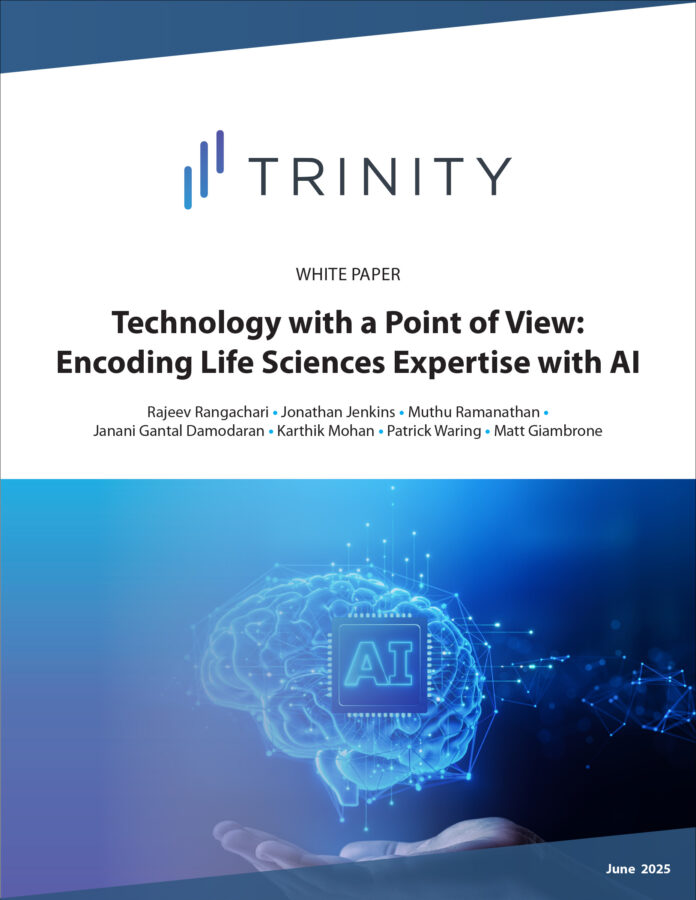WALTHAM, Mass.– Trinity Life Sciences has released a new technical white paper exploring how life sciences companies can effectively adopt and scale generative AI (GenAI) technologies. The paper, Technology with a Point of View: Encoding Life Sciences Expertise with AI, outlines strategic guidance for organizations looking to transition from early GenAI experimentation to full-scale transformation.
According to Trinity, GenAI holds the potential to fundamentally reshape the biopharmaceutical industry by streamlining information processing, accelerating insight generation, and enabling more sophisticated data outputs. However, the firm warns that without careful planning and domain-specific training, GenAI deployments risk underperformance or failure—an issue that has already played out in publicized examples of poorly implemented models.
The white paper outlines five core questions that life sciences leaders must address to ensure effective adoption of GenAI. These include determining optimal launch timing, deciding whether to build solutions in-house or partner with vendors, defining business optimization goals, identifying return on investment, and establishing the right data foundation for scalable AI use.
Rajeev Rangachari, Chief Technology Officer at Trinity Life Sciences, emphasized the transformative value of GenAI across previously limited areas such as Medical Affairs, Value and Access, and Field Sales. “GenAI has groundbreaking potential in terms of business value, as it amplifies the capacity of non-technical personas within life sciences organizations to deliver exponential impact,” he said.
Jonathan Jenkins, Head of Digital & AI Solutions at Trinity, noted that successful GenAI integration requires both visionary leadership and practical alignment with real business needs. “To unlock the transformative opportunity of GenAI, two elements need to connect: leadership that imagines possibilities across business and technical worlds, and applications that bring the potential of AI to business needs,” he said.
The white paper is part of Trinity’s broader effort to help life sciences companies navigate the complexities of GenAI adoption with insight-driven strategies and specialized expertise.


